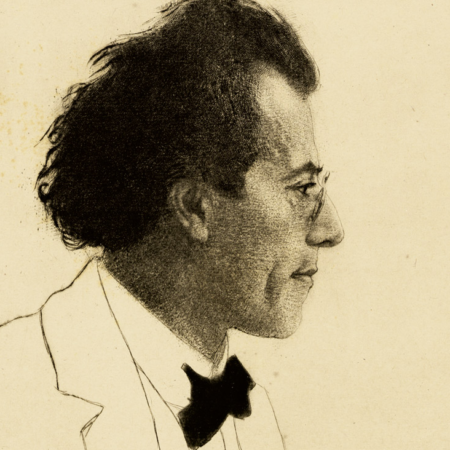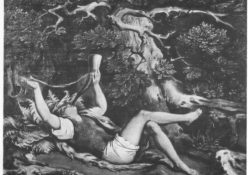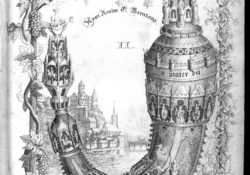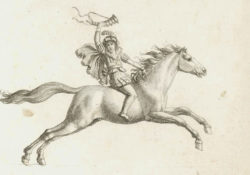„Des Knaben Wunderhorn" Audio Selections
Listen to the various Des Knaben Wunderhorn Audio Selections below.
Des Knaben Wunderhorn
Thomas Hampson, baritone
Wiener Virtuosen
Deutsche Grammophon, 2011
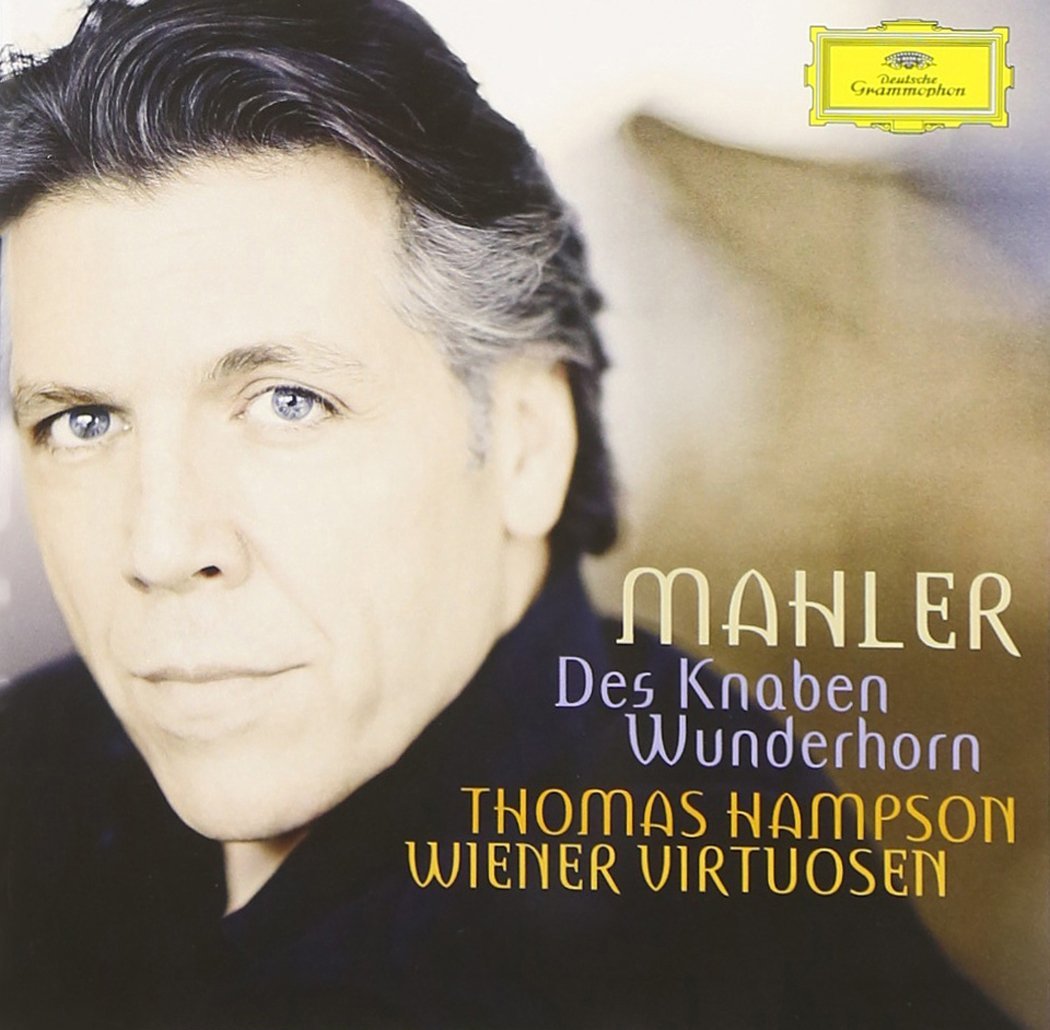
“Des Knaben Wunderhorn”: 2. “Verlorne Müh”
Thomas Hampson sings Gustav Mahler’s song “Verlorne Müh” from “Des Knaben Wunderhorn.” In this 2011 Deutsche Grammophone recording, Hampson is joined by the Wiener Virtuosen.
2. Verlorne Müh’!
„Büble, wir!
Büble, wir wollen auße gehe!
Wollen wir?
Unsere Lämmer besehe?
Gelt! Komm! Komm! lieb’s Büberle,
komm’, ich bitt’!“
Er:
„Närrisches Dinterle,
ich mag dich halt nit!“
Sie:
„Willst vielleicht –
Willst vielleicht a bissel nasche?
Hol’ dir was aus meiner Tasch’!
Hol’, lieb’s Büberle,
hol’, ich bitt’!“
Er:
„Närrisches Dinterle,
ich nasch’ dir halt nit!“
Sie:
„Gelt, ich soll –
Gelt? ich soll mein Herz dir schenke?
Immer willst an mich gedenken.
Immer!
Nimm’s, lieb’s Büberle!
Nimm’s, ich bitt’!“
Er:
„Närrisches Dinterle,
ich mag es halt nit!
nit!“
‘Laddie, we!
Laddie, we want to go out!
Shall we?
Look at our lambs?
Come, come, dear laddie!
Come, I beg you!’
He:
‘Silly lassie,
I don’t like you at all!’
She:
‘You want perhaps –
You want perhaps a little bit to nibble?
Fetch yourself something out of my bag!
Fetch it, dear laddie!
Fetch it, I beg you!’
He:
‘Silly lassie,
I’ll nibble nothing of yours at all!’
She:
‘You mean, I should –
You mean, I should give you my heart!?
Always will you want to think on me.
Always!
Take it! Dear laddie!
Take it, I beg you!’
He:
‘Silly lassie,
I don’t care for it at all!
Nothing!’
English translation by Renate Stark-Voit and Thomas Hampson, © 2002
“Des Knaben Wunderhorn”: 3. “Trost im Unglück”
Thomas Hampson sings Gustav Mahler’s song “Trost im Unglück” from “Des Knaben Wunderhorn.” In this 2011 Deutsche Grammophone recording, Hampson is joined by the Wiener Virtuosen.
3. Trost im Unglück
Mein Pferd, das muß gesattelt sein!
Ich hab’ mir’s vorgenommen,
geritten muß es sein!
Geh’ du nur hin!
Ich hab’ mein Teil!
Ich lieb’ dich nur aus Narretei!
Ohn’ dich kann ich wohl leben!
Ja leben!
Ohn’ dich kann ich wohl sein!
So setz’ ich mich auf’s Pferdchen,
und trink’ ein Gläschen kühlen Wein!
Und schwör’s bei meinem Bärtchen:
dir ewig treu zu sein!
Du glaubst, du bist der Schönste
wohl auf der ganzen weiten Welt,
und auch der Angenehmste!
Ist aber weit, weit gefehlt!
In meines Vaters Garten
wächst eine Blume drin!
So lang’ will ich noch warten,
bis die noch größer ist!
Und geh’ du nur hin!
Ich hab mein Teil!
Ich lieb’ dich nur aus Narretei!
Ohn’ dich kann ich wohl leben,
ohn’ dich kann ich wohl sein!
Du glaubst, ich werd’ dich nehmen!
Das hab’ ich lang’ noch nicht im Sinn!
Ich muß mich deiner schämen,
wenn ich in Gesellschaft bin!
My horse, it must be saddled!
I’ve made up my mind,
I must ride away!
Off you go!
I have my due!
I love you only in folly!
Without you I can well live!
Yes, live!
Without you I can well exist!
So I’ll sit on my horse
and drink a glass of cool wine,
and swear by my little beard,
to be true to you forever!
You think, you are the handsomest
in the whole wide world,
and also the most pleasant!
But you are far, far off the mark!
In my father’s garden
there’s a flower growing!
I’ll keep waiting
till it is bigger!
And off you go!
I have my due!
I love you only in folly!
Without you I can well live!
Without you I can well exist!
You think I’m going to take you!
That I will not think of for a long time!
I must be ashamed of you,
when I am in public!
English translation by Renate Stark-Voit and Thomas Hampson, © 2002
“Des Knaben Wunderhorn”: 5. “Lob des hohen Verstands”
Thomas Hampson sings Gustav Mahler’s song “Lob des hohen Verstands” from “Des Knaben Wunderhorn.” In this 2011 Deutsche Grammophone recording, Hampson is joined by the Wiener Virtuosen.
5. Lob des hohen Verstands
Kukuk und Nachtigall
täten ein’ Wett’ anschlagen.
Zu singen um das Meisterstück,
gewinn’ es Kunst, gewinn’ es Glück!
Dank soll er davon tragen.
Der Kukuk sprach: „So dir’s gefällt,
hab’ ich den Richter wählt,“
und tät gleich den Esel ernennen.
„Denn weil er hat zwei Ohren groß,
so kann er hören desto bos,
und, was recht ist, kennen!“
Sie fl ogen vor den Richter bald.
Wie dem die Sache ward erzählt,
schuf er, sie sollten singen!
Die Nachtigall sang lieblich aus!
Der Esel sprach: „Du machst mir’s kraus!
Du machst mir’s kraus! Ija! Ija!
Ich kann’s in Kopf nicht bringen!“
Der Kukuk drauf fing an geschwind
sein Sang durch Terz und Quart und Quint.
Dem Esel g’fi els, er sprach nur:
„Wart! Wart! Wart!
Dein Urteil will ich sprechen,
ja sprechen.
Wohl sungen hast du, Nachtigall!
Aber Kukuk, singst gut Choral!
Und hältst den Takt fein innen!
Das sprech’ ich nach mein’ hoh’n Verstand,
und kost’ es gleich ein ganzes Land,
so laß ich’s dich gewinnen, gewinnen!“
Kukuk, kukuk! Ija!
the cuckoo and the nightingale
struck a wager.
Whoever sang the masterpiece,
whether won by art or won by luck!
Thanks would he take away.
The cuckoo spoke: ‘If you agree,
I have chosen the judge,’
and he at once named the ass.
‘For since he has two large ears,
he can hear all the better,
and recognize what is right!’
Soon they flew before the judge.
When he was told the matter,
he decreed that they should sing!
The nightingale sang out sweetly!
The ass spoke: ‘You muddle me up!
You muddle me up! Heehaw! Heehaw!
I can’t get it into my head!’
There upon the cuckoo began quickly
his song in thirds and fourths and fifths.
It pleased the ass, he spoke but:
‘Wait! Wait! Wait!
I will pronounce thy judgement,
yes, pronounce.
You have sung well, nightingale!
But, cuckoo, you sing a good chorale!
And hold the beat precisely!
I speak from my higher understanding!
And even if it cost a whole country,
I thus pronounce you the winner, the winner!’
Cuckoo, cuckoo! Heehaw!
English translation by Renate Stark-Voit and Thomas Hampson, © 2002
“Des Knaben Wunderhorn”: 14. “Urlicht”
Thomas Hampson sings Gustav Mahler’s song “Urlicht” from “Des Knaben Wunderhorn.” In this 2011 Deutsche Grammophone recording, Hampson is joined by the Wiener Virtuosen.
14. Urlicht
Der Mensch liegt in größter Not!
Der Mensch liegt in größter Pein!
Je lieber möcht’ ich im Himmel sein!
Da kam ich auf einen breiten Weg.
Da kam ein Engelein und wollt mich abweisen.
Ach nein! Ich ließ mich nicht abweisen!
Ach nein! Ich ließ mich nicht abweisen:
Ich bin von Gott, und will wieder zu Gott!
Der liebe Gott wird mir ein Lichtchen geben,
wird leuchten mir bis in das ewig selig Leben!
Man lies in greatest need!
Man lies in greatest pain!
Even more would I rather be in heaven!
There I came upon a broad path.
There came an angel and wanted to turn me away.
Ah no, I would not be turned away!
Ah no, I would not be turned away:
I am from God and want to return to God!
The loving God will give me a little of the light,
will illuminate me into the eternal blessed life!
English translation by Renate Stark-Voit and Thomas Hampson, © 2002
